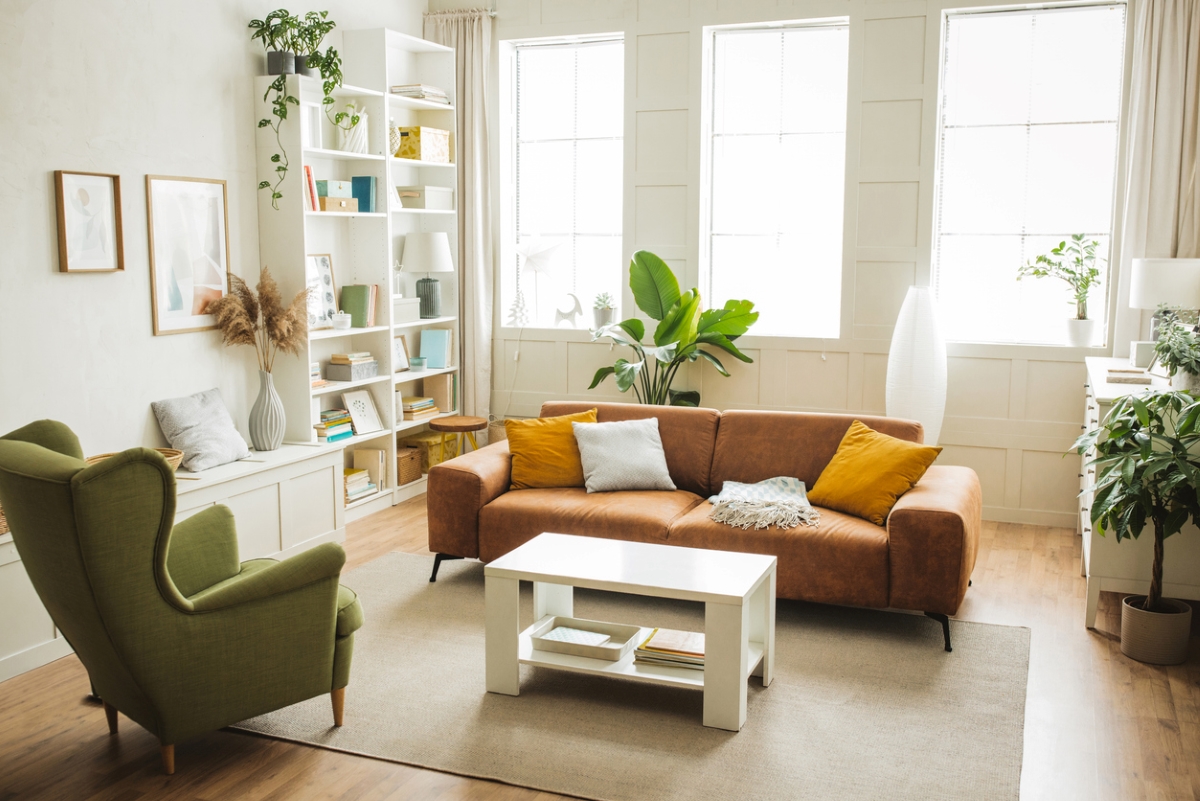We may earn revenue from the products available on this page and participate in affiliate programs. Learn More ›
Studio apartments, or even 3-bedroom homes your family has outgrown, can feel cramped and cluttered. Figuring out how to make the most of too-little space is no easy task. But there’s plenty that those short on space can do to organize items, streamline furniture, adjust the layout, and decorate to make a room look bigger. These small space storage ideas and design tips can help you make the most of your limited square footage.
1. Using Multifunctional Furniture
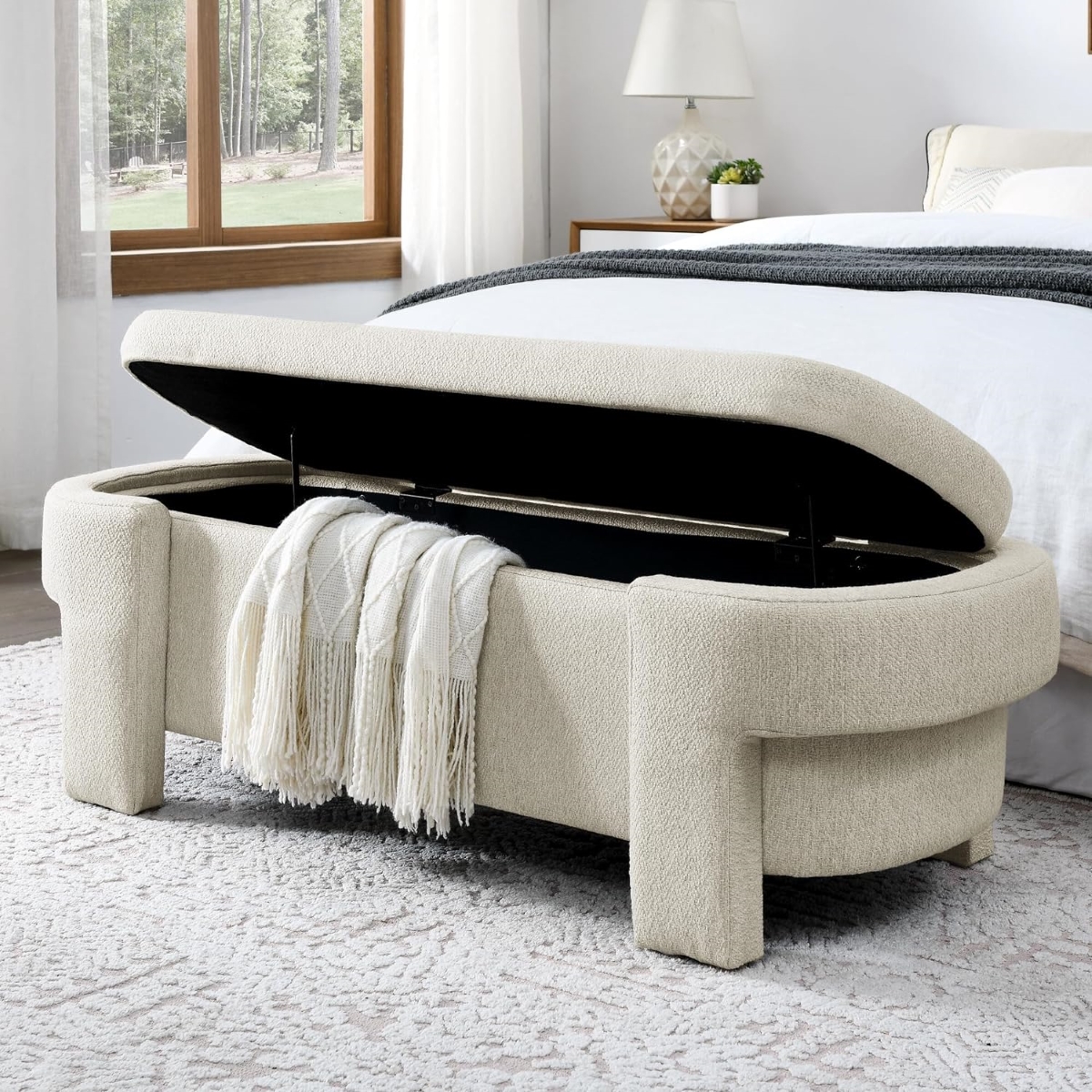
Photo: Amazon
In a small space, use furniture pieces that do double duty. For example, place a lofted bed with a desk underneath to maximize a bedroom’s space. Or add an ottoman in the living area that doubles as a storage cube for blankets. Place a wooden chest or bench at the foot of your bed and use it to store clothing and blankets, or provide extra seating.
If you think your place is too small for a home office, think again. Beautiful and functional, an armoire-turned-home-office might be just the fun and functional piece to remedy your spatial dilemma.
2. Select Your Furniture Carefully
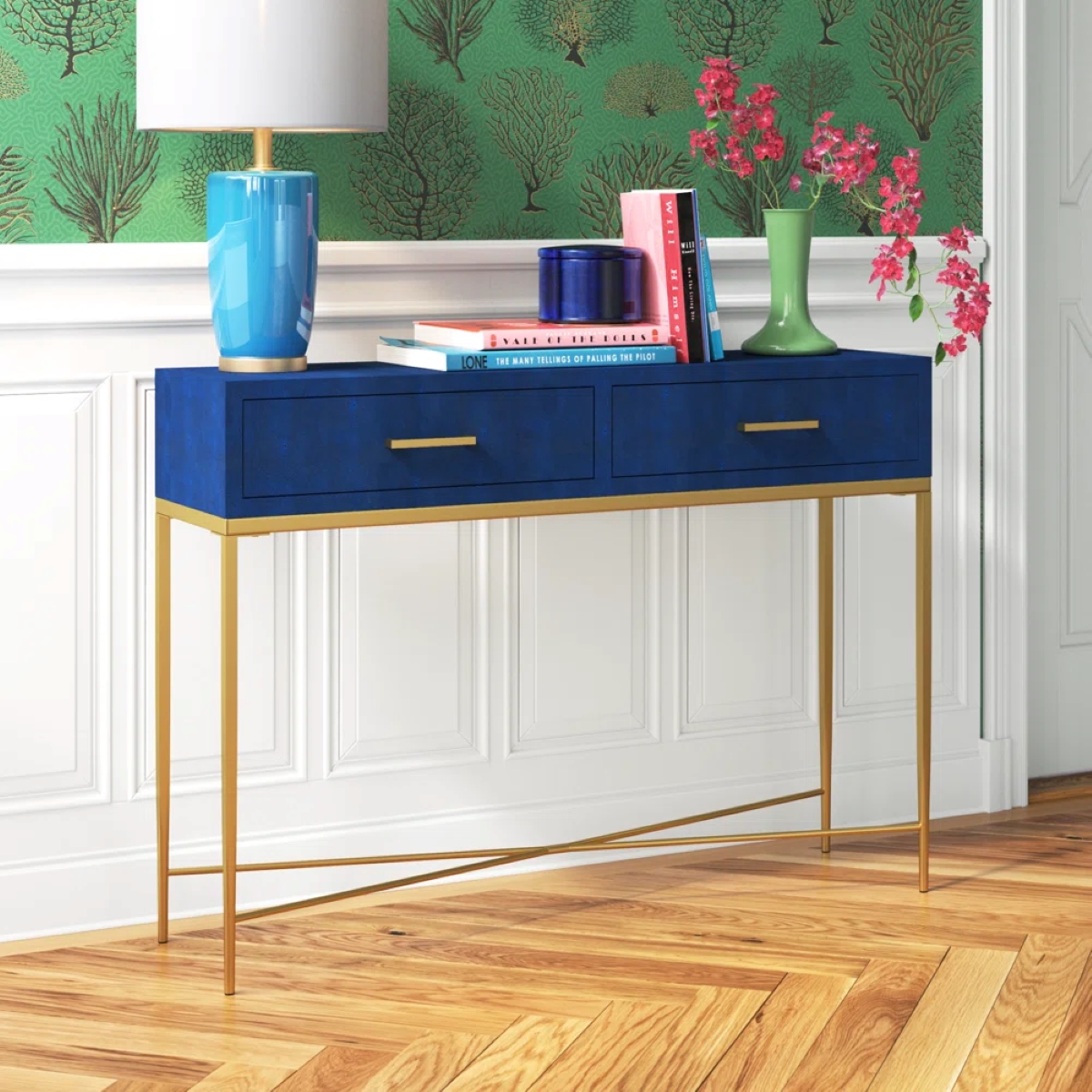
Photo: Wayfair
Carefully selecting furniture isn’t just about finding pieces that double as storage—pieces with certain features can make a space seem larger. Furniture made of lucite or glass looks less bulky than traditional wood pieces, and the transparency offers a clean, modern appearance. As a result, a space that once felt cluttered and clunky will instead feel airy and light.
And here’s another design secret: Furnishings that are upholstered all the way to the floor can swallow up a room quickly. In a small space, opt for couches and tables that are supported by slim legs, because they will appear lighter. The more floor you can see, the bigger the room feels, which is a reason to edit out unnecessary visual clutter near the floor.
3. Make Your Rooms Multifunctional
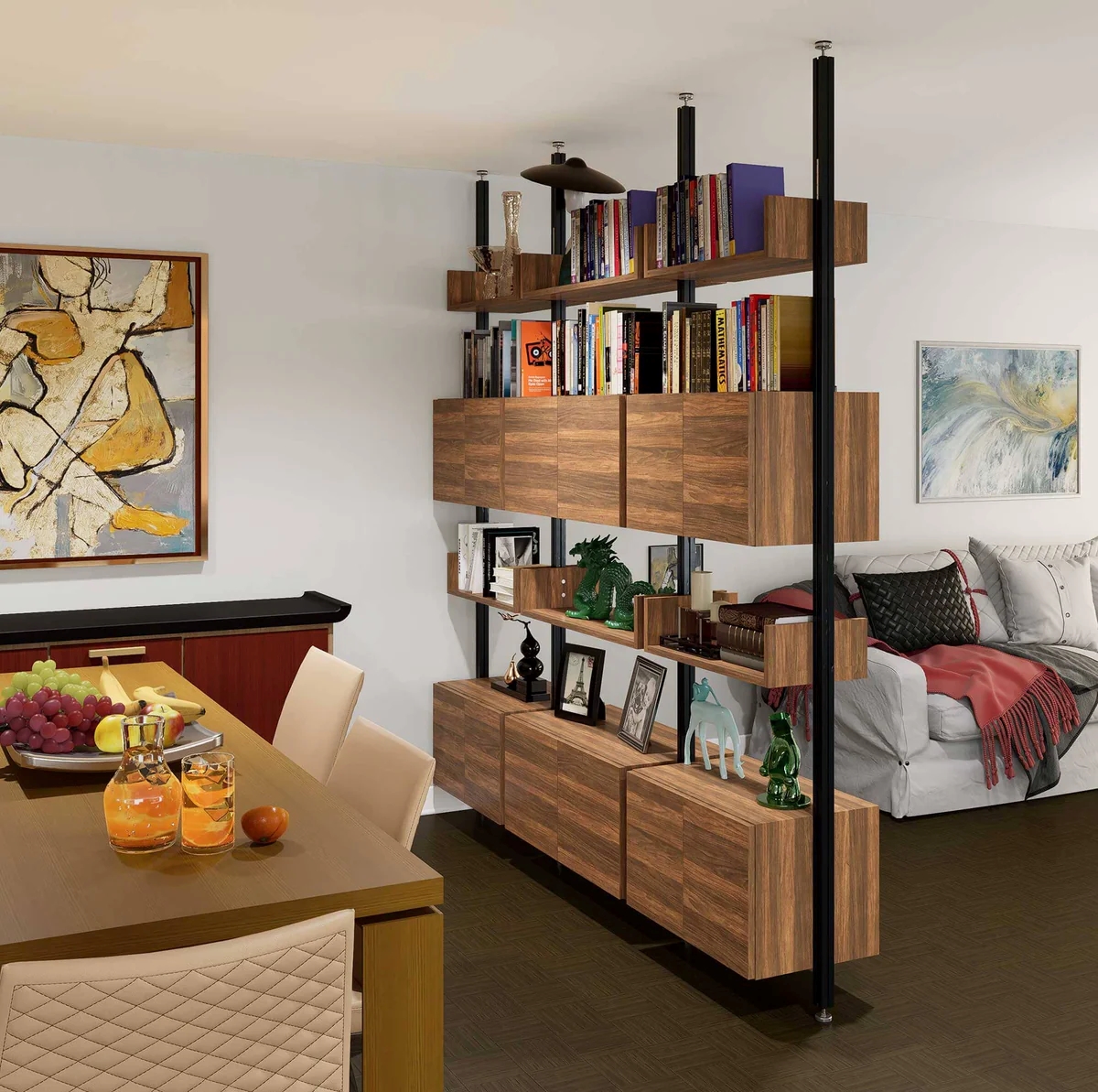
Photo: Modern Shelving
A room can become multifunctional, too. Carve out distinct zones for various functions and maximize your layout by using every inch of both floor and wall space. You might combine a kitchen or dining area and an office, for example, or tuck an exercise bike into a corner of your main living space for a living room/gym combo. Consider using a strategically placed bookcase as a room divider; it will serve double duty as a storage device for books, magazines, and artwork, while delineating distinct spaces.
4. Move Stuff Up
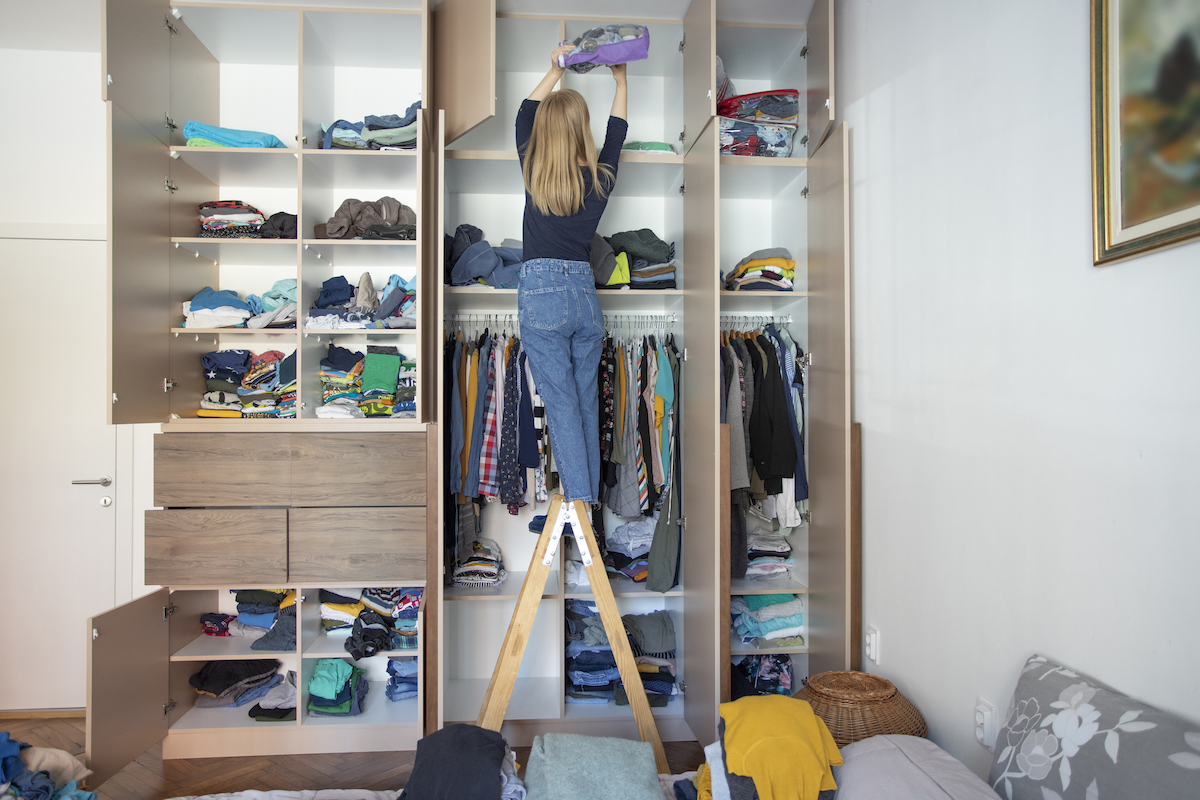
Photo: Getty Images
When there’s no more room to spread out, spread up. Take advantage of every inch of vertical space and make the room feel more open by incorporating tall cabinets or stacked shelves into your space. Draw visitors’ eyes upward by keeping decorative accessories on top shelves. Fill the lower ones with items that are used frequently but still need to be stored.
5. Add an Unexpected Element
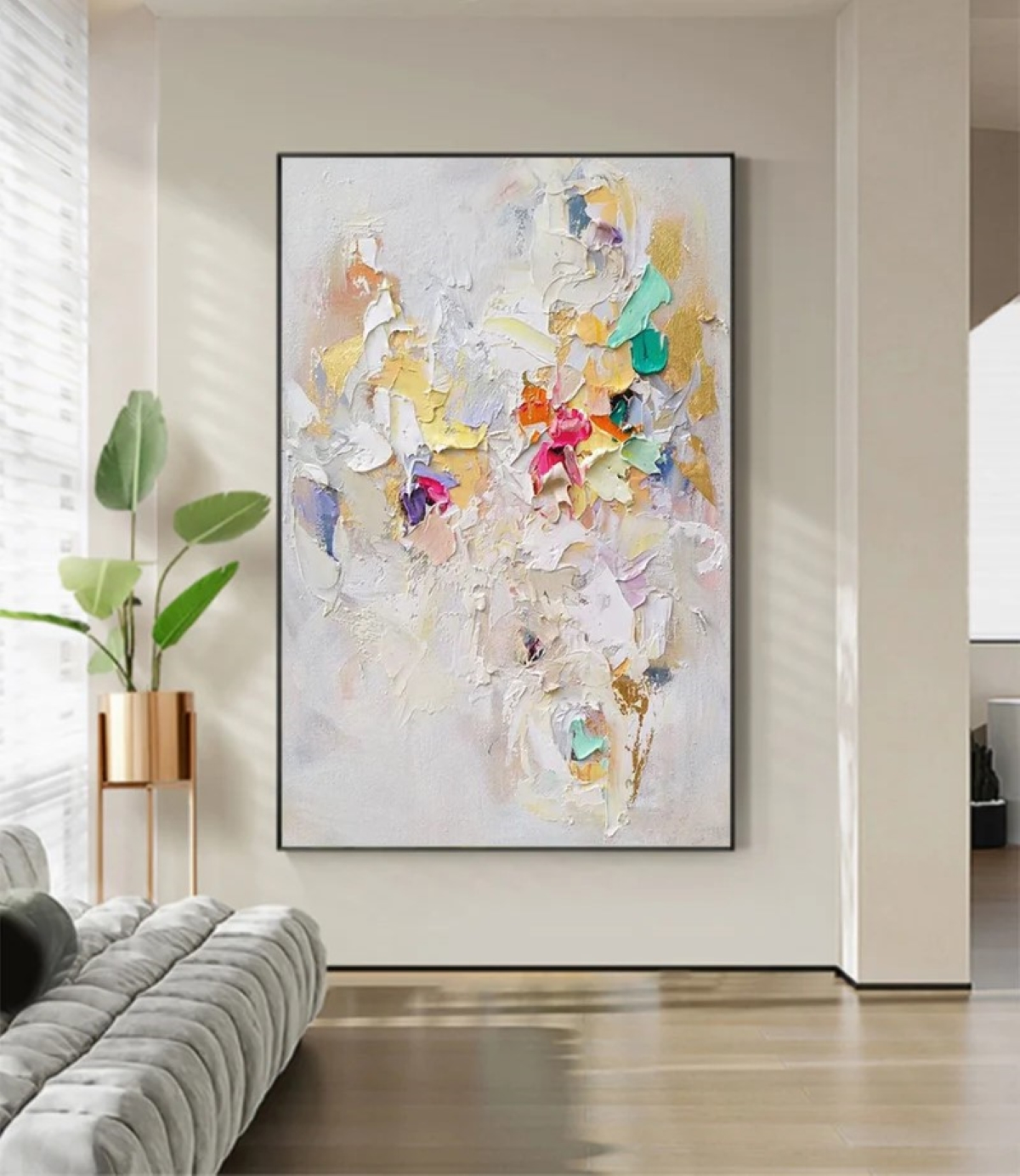
Photo: Artextured
Emphasize whatever assets your small space has by creating unexpected but eye-pleasing focal points. Consider a brightly patterned rug, for example, or a tall, vertical piece of art that adds height to the room.
6. Find Spots for Shelves or Hooks
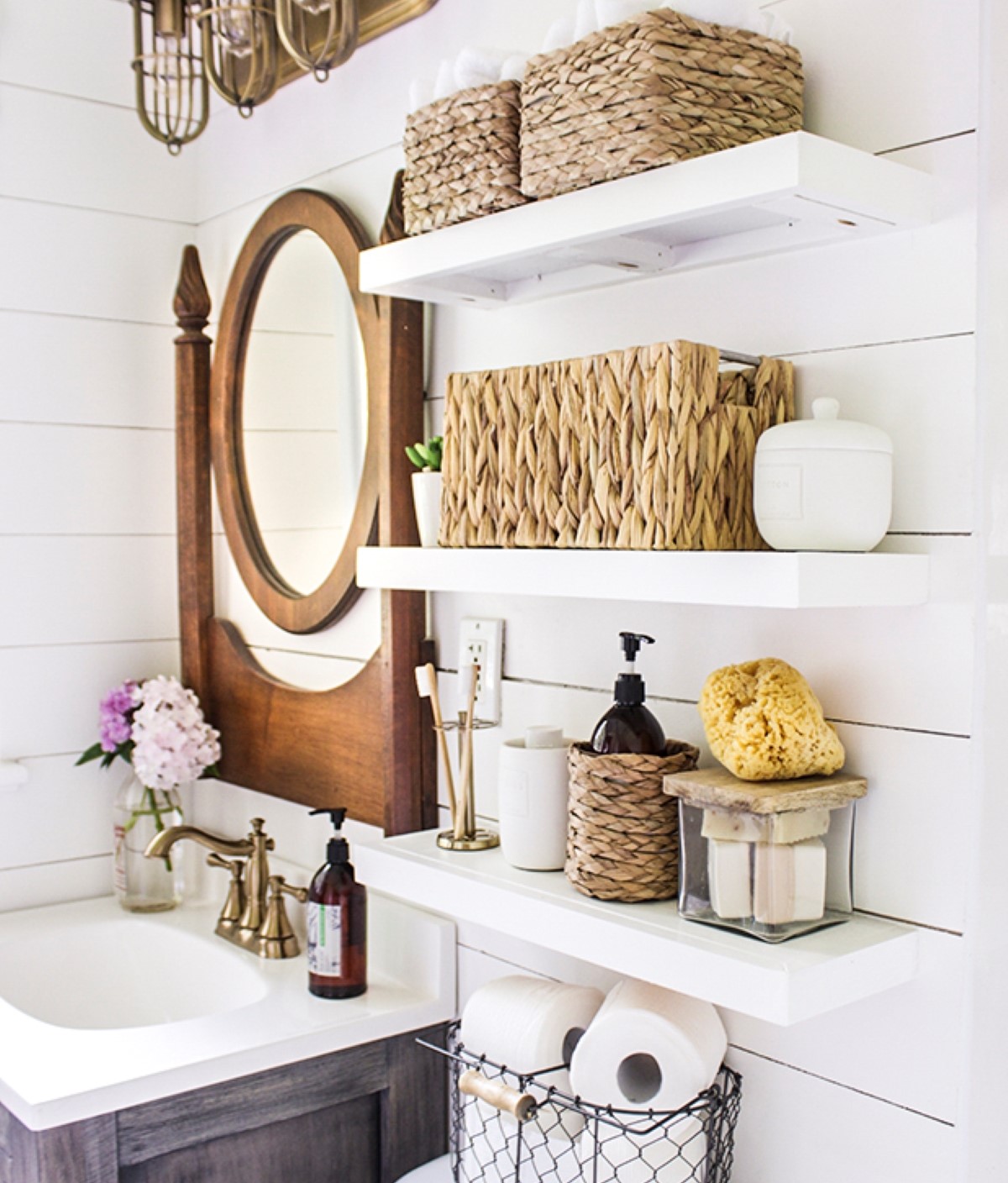
Photo: shadesofblueinteriors.com
If your bathroom is feeling cramped, you can create extra storage space by mounting a shallow ledge near the sink. Use it to hold lotions, face wash, toothbrushes, and other items you use daily; store the rest of your toiletries in decorative baskets or out of sight. Additionally, make sure you have adequate towel bars and hooks to organize hanging items.
7. Keep Colors Light
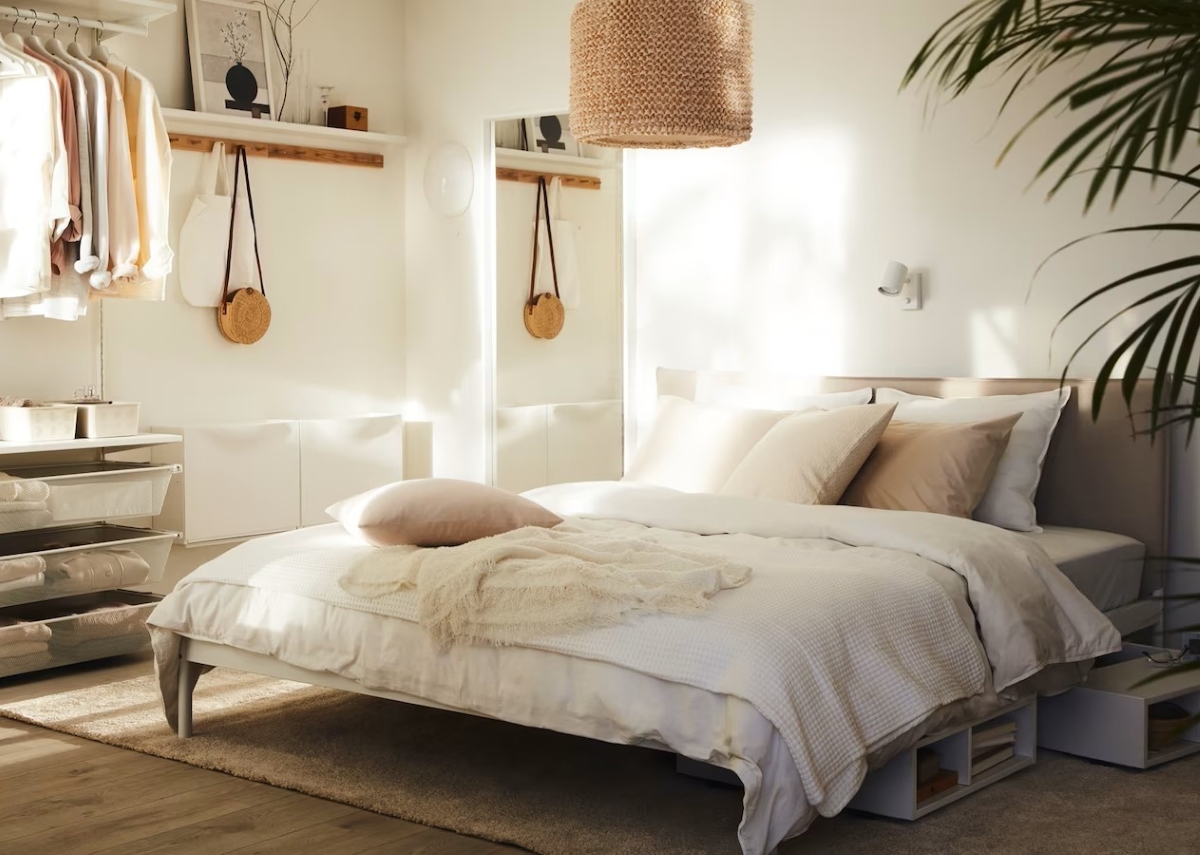
Photo: IKEA
Light interior paint colors give the illusion of being in a larger room. Painting your walls in a pristine white or a sunny yellow is an easy fix that makes a room seem airier and more open. Colors that reflect light can capitalize on the natural light from windows.
8. Try Hanging Storage
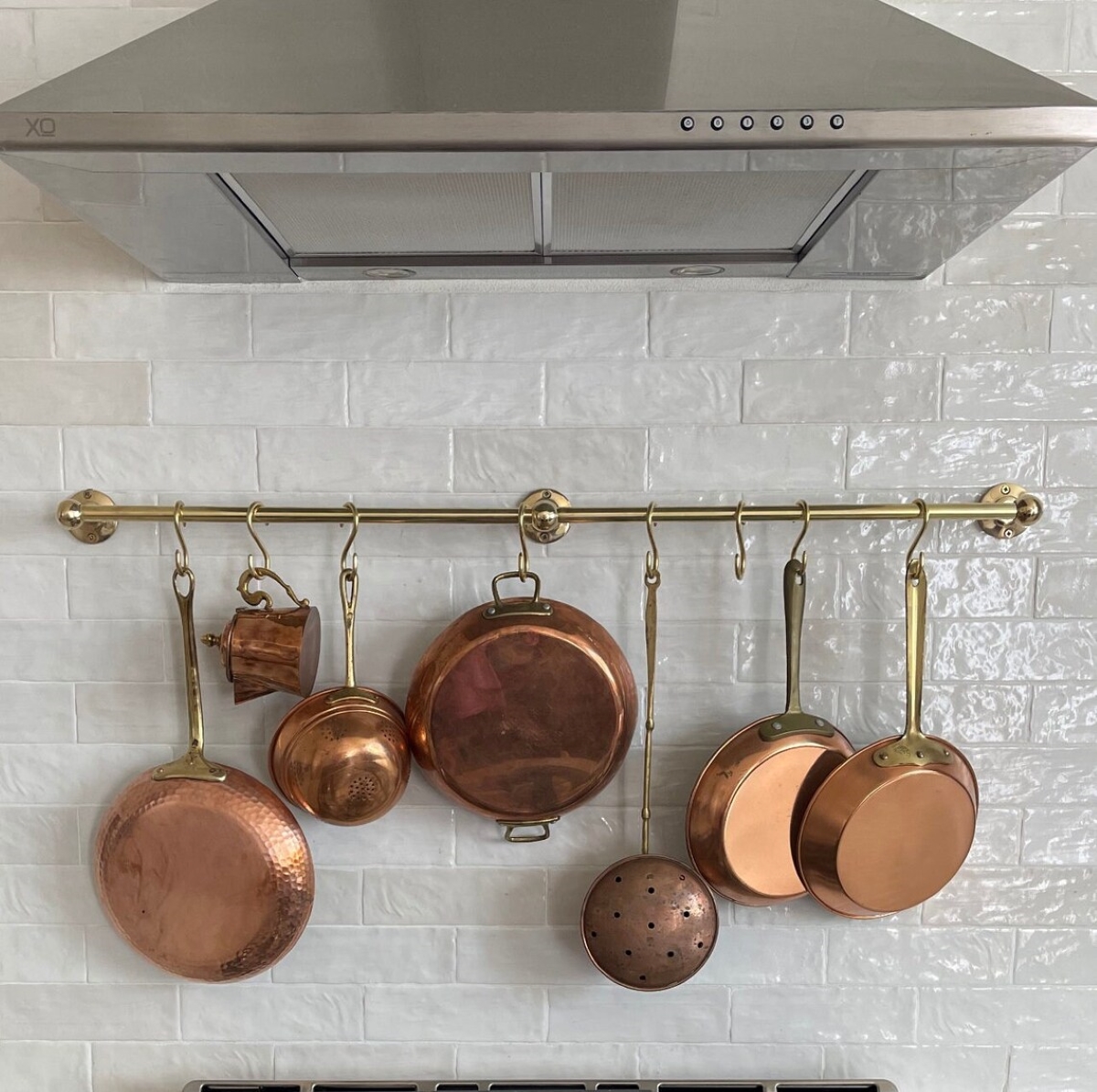
Photo: BrassCopperPure via Etsy
9. Reflect on Mirrors
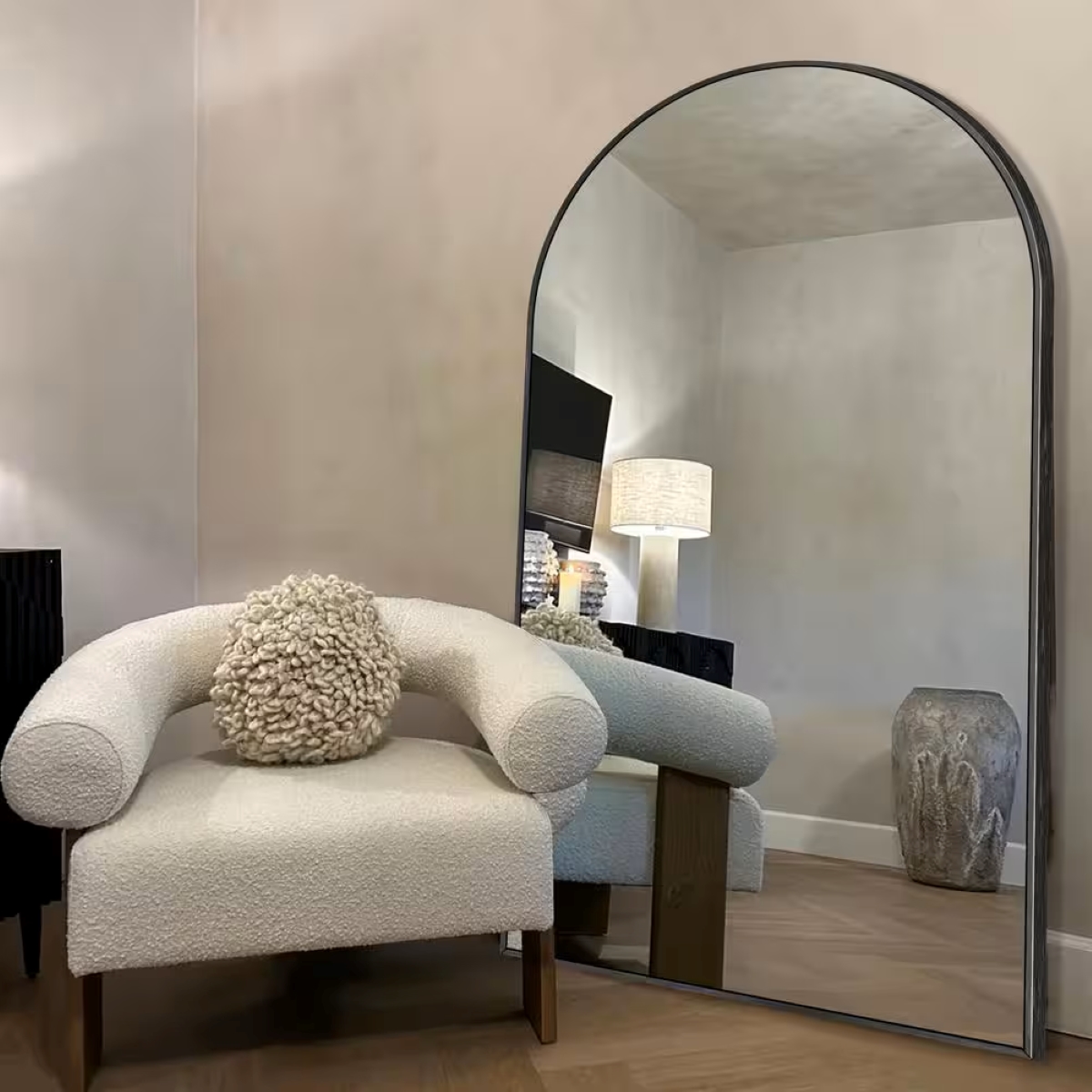
Photo: The Home Depot
Borrow a trick from the world of magic by placing a large decorative mirror behind a sofa or bed. The mirror frames the furniture and instantly creates the illusion of a much larger space. You can also hang mirrors on the walls in a small room to make it feel lighter and brighter. Don’t be afraid to use more than one. While you might want to avoid placing them directly across from one another, combining wall mirrors with mirrored furniture is a great way to make a small space feel larger.
10. Swap in Sliding Doors
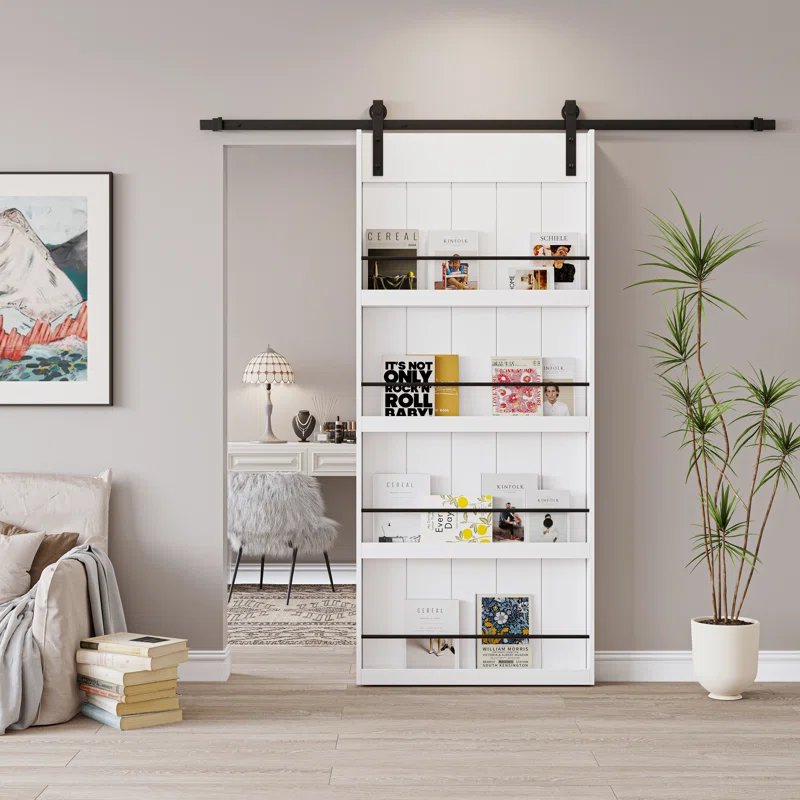
Photo: Wayfair
Traditional doors require a significant footprint to allow for their swing. Consider swapping French doors or even a single door for the sliding type, like surface-mounted barn-type doors or pocket doors, if the structure of your space permits.
11. Embrace Natural Light
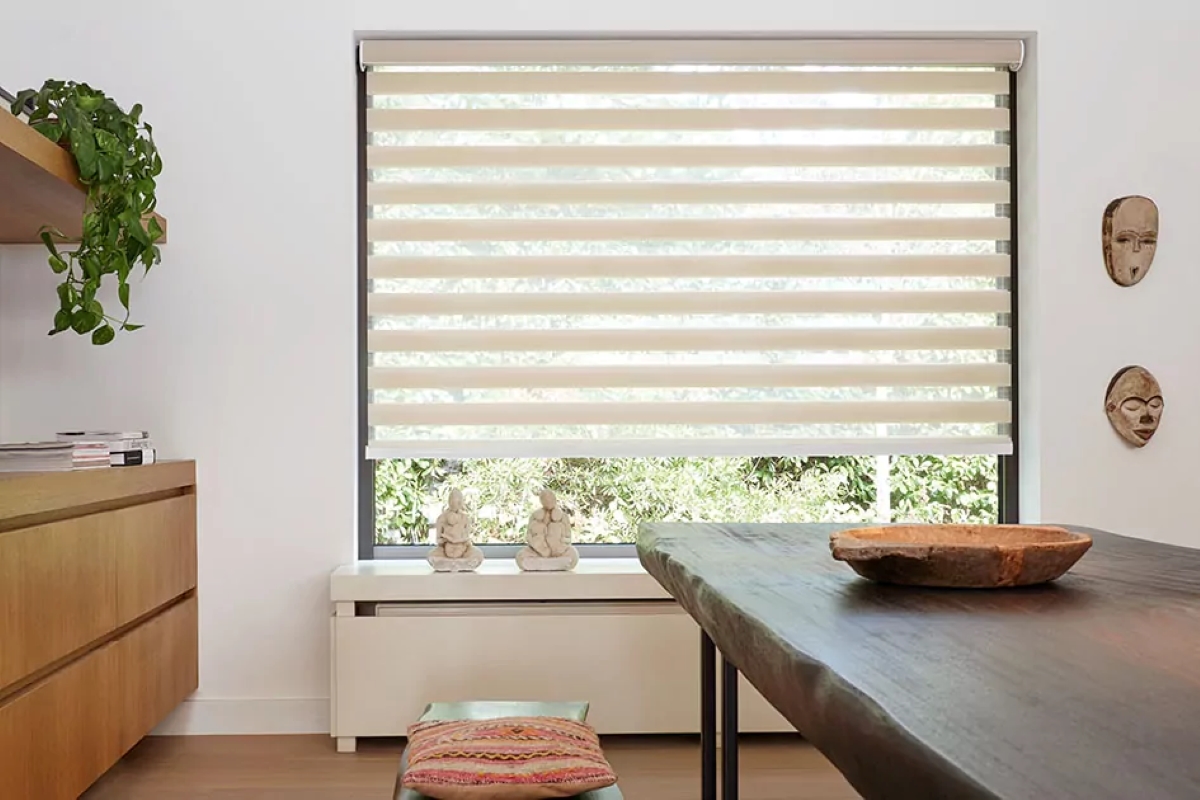
Photo: The Shade Store
Even a small room will appear large when flooded with natural light. If you have few windows, consider installing blinds or shades that soften rather than block the light. Also, avoid large pieces of furniture that can prevent light from filtering through the space.

Save Energy While Staying Cozy
Today’s energy-efficient space heaters warm individual rooms, so users needn’t heat unoccupied areas of the house. We tested the most popular space heaters on the market to find out which ones performed the best.
